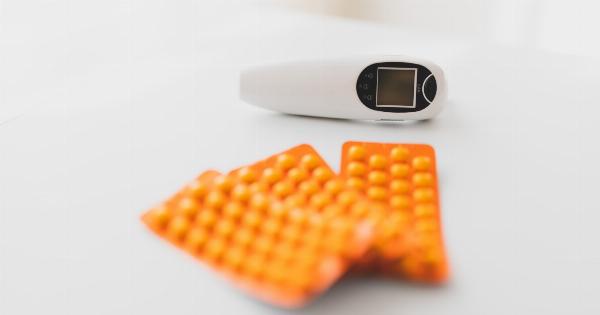When a cold strikes, it can leave you feeling miserable and unable to carry out your daily activities.
However, if you catch it early and take the necessary steps to manage the initial symptoms, you can potentially reduce the severity and duration of the cold. In this article, we will explore some effective tips for defeating a cold at its onset, helping you to feel better and get back on track faster.
1. Load Up on Vitamin C
Vitamin C is known to boost the immune system and help fight off infections. When you feel the first signs of a cold, increase your intake of vitamin C-rich foods, such as citrus fruits, strawberries, bell peppers, and spinach.
You can also consider taking vitamin C supplements to provide an extra immune system boost.
2. Stay Hydrated
Drinking plenty of fluids is crucial when dealing with a cold. It helps thin out mucus, reduces congestion, and keeps your body hydrated.
Warm liquids like herbal teas, broths, and warm water with lemon can provide soothing relief for your throat and nasal passages. Make sure to avoid caffeinated and sugary beverages as they can dehydrate your body.
3. Rest and Sleep
One of the most important things you can do when you’re starting to feel a cold coming on is to prioritize rest and sleep. Adequate rest gives your body the chance to heal and recover faster.
Take breaks throughout the day and go to bed early to allow your immune system to fight off the virus effectively.
4. Gargle with Salt Water
When you have a sore throat due to a cold, gargling with warm salt water can provide temporary relief. The salt helps reduce inflammation and soothe the pain.
Mix half a teaspoon of salt with warm water and gargle the solution for 30 seconds before spitting it out. Repeat this a few times a day for relief.
5. Use Nasal Saline Sprays
Nasal saline sprays are excellent for relieving nasal congestion, especially during the early stages of a cold. These sprays help moisturize your nasal passages and rinse away irritants.
Make sure to follow the instructions carefully and avoid overusing nasal sprays as they can cause rebound congestion.
6. Hot Steam Inhalation
Inhaling steam can help alleviate congestion and reduce nasal inflammation. Boil a pot of water and place your face over the pot, covering your head with a towel to create a steam tent. Breathe deeply for about 10 minutes, taking breaks if needed.
Be cautious to avoid burns and never leave the steam unattended.
7. Opt for Over-the-Counter Remedies
Over-the-counter cold medications can provide relief for various symptoms such as cough, sore throat, congestion, and headache.
However, it’s important to carefully read and follow the instructions, especially if you have any existing medical conditions or are taking other medications.
8. Eat Nutritious Foods
A well-balanced and nutritious diet plays a vital role in supporting your immune system. Incorporate foods that are rich in nutrients, such as fruits, vegetables, lean proteins, and whole grains.
These foods provide the necessary vitamins and minerals to keep your immune system strong and ready to fight off the cold virus.
9. Stay Warm and Comfortable
Dress warmly to keep your body temperature stable and avoid catching a chill.
When you’re affected by a cold, your body is already working hard to fight off the virus, so staying warm will help conserve your energy and allow your immune system to focus on recovery.
10. Practice Good Hygiene
In order to prevent further spreading of your cold or catching another one, it’s important to practice good hygiene habits. Wash your hands frequently with soap and water, especially after blowing your nose or sneezing.
Use tissues or your elbow to cover your mouth and nose when sneezing or coughing to prevent the spread of germs.
Conclusion
The key to defeating a cold at its onset lies in promptly recognizing the initial symptoms and taking proactive measures. By following these tips, you can effectively manage the early symptoms, reduce the severity of your cold, and shorten its duration.
Remember to prioritize self-care, get adequate rest, and support your immune system through proper nutrition and hydration. Stay vigilant with good hygiene practices to protect yourself and others from further infections.























